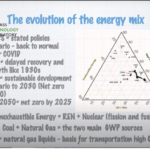Global climate goals require rapid adoption of carbon capture and utilization (CCU), in particular to reduce the dependency of transport and chemicals production on fossil feedstock. In transport, battery electric power-trains can only solve parts of the puzzle, liquid fuels based on CCU are needed to fill a large market gap in long-distance, heavy goods and marine transport.
In 2012 Carbon Recycling International (CRI) demonstrated for the first time how CO2 and electrolysis can be used to produce liquid fuel at industrial scale. CRI pioneered the technical development of an integrated CO2-to-methanol platform, consisting of kiloton-scale CO2 capture, MW-scale electrolysis and one-step hydrogenation of CO2. The platform and technology solution is marketed as ‘Emissions-to-Liquids’.
CRI has now implemented the full value chain of power-to-liquids (e-fuel) and CO2-to-liquid (recycled carbon fuel) including the world’s first system for certification of sustainability for e-fuels. CRI’s renewable methanol is being used as M100, pure fuel in internal combustion engine and fuel cell vehicles, as a part of blended gasoline, for biodiesel production, for water purification and as a chemical feedstock.
In 2019-2020 CRI has implemented two important demostration projects in Germany and Sweden. The company is now implementing the first commercial-scale CO2-to-methanol plants in China based on the Emissions-to-Liquids process, utilizing waste industrial gases and developing a commercial-scale project based on electrolysis in Norway.
This talk will discuss how CRI met these milestones, the technical advantages and track-record of the CRI Emissions-to- Liquids process, competitive and regulatory landscape for low-carbon intensity fuels and chemicals from carbon capture and utilization and what the future brings, in terms of opportunities and challenges.
When: December 9th 2020
Time : 9 h 00 (EST)
Speaker: Dr. Benedikt Stefànsson, Director of Business Developpement of Carbon Recycling International
Register here


